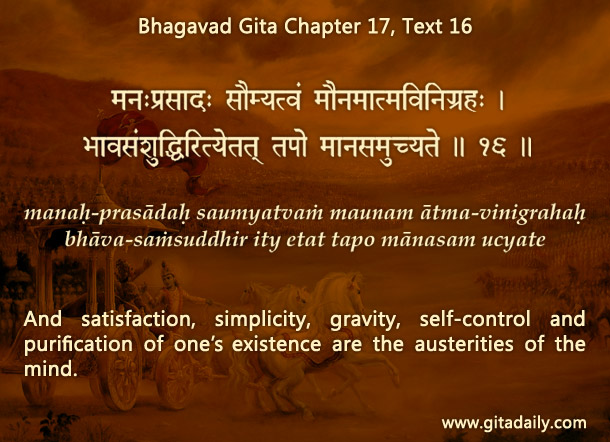When we decide to prioritize the cultivation of gratitude after understanding its importance, we may still run into a significant roadblock. That roadblock may center on not our conception of gratitude, which we may have appropriately elevated from an emotion that we sometimes have to a disposition that we conscientiously cultivate. Rather, it may center on our conception of what to be grateful for, which may also need to be reviewed and revised.
Most of us function for most of the time in overall conformity with the broader culture’s purposes and priorities. And those rest on the presumption that the world and its pleasures are the primary purpose of life, even its defining purpose. As long as we have that material conception of happiness, we will find it difficult to cultivate gratitude steadily because the objects for which we seek to be grateful are unsteady. External material things are temporary at best and leave us in distress when our connection with them is terminated by the inevitable disruptive power of time.
Pertinently, the Bhagavad-gita (10.09) states that the wise delight in the all-attractive divinity, Krishna, and in his inexhaustible glories. Because the Lord is unlimitedly attractive and because his glories are ever available for us to realize and relish, he is a source of joy that once attained will be inalienable for us. The more we learn to delight in him and his glories by practicing bhakti-yoga, which is the time-honored process for connecting our consciousness with the Lord and redirecting our desires for pleasure from the world to him, then to that extent we can be steadily joyful and steadily grateful for having access to such a spiritual conception of happiness and the personal experience of that happiness, thereby applying the Gita’s guideline to cultivate contentment (17.16).
Summary:
To cultivate gratitude stably, seek to delight in God and His glories, not in the world and its pleasures.
Think it over:
- If we want to cultivate gratitude steadily, what are the two things we need to elevate?
- How does a material conception of happiness undermine our cultivation of steady gratitude?
- How is that cultivation aided by a spiritual conception of happiness?
Audio explanation of the article is here: https://gitadaily.substack.com/p/revising-what-we-feel-grateful-for
***
17.16: And satisfaction, simplicity, gravity, self-control and purification of one’s existence are the austerities of the mind.
To know more about this verse, please click on the image


Leave A Comment